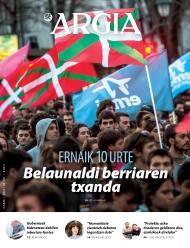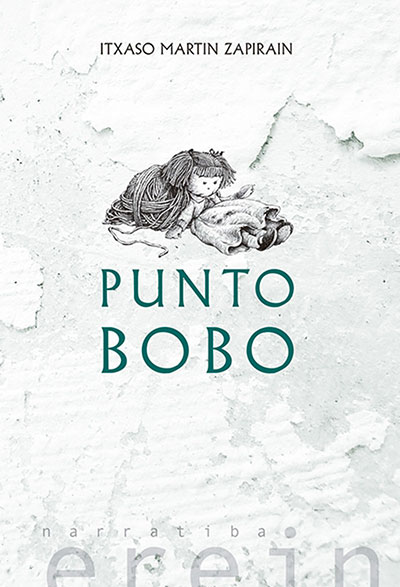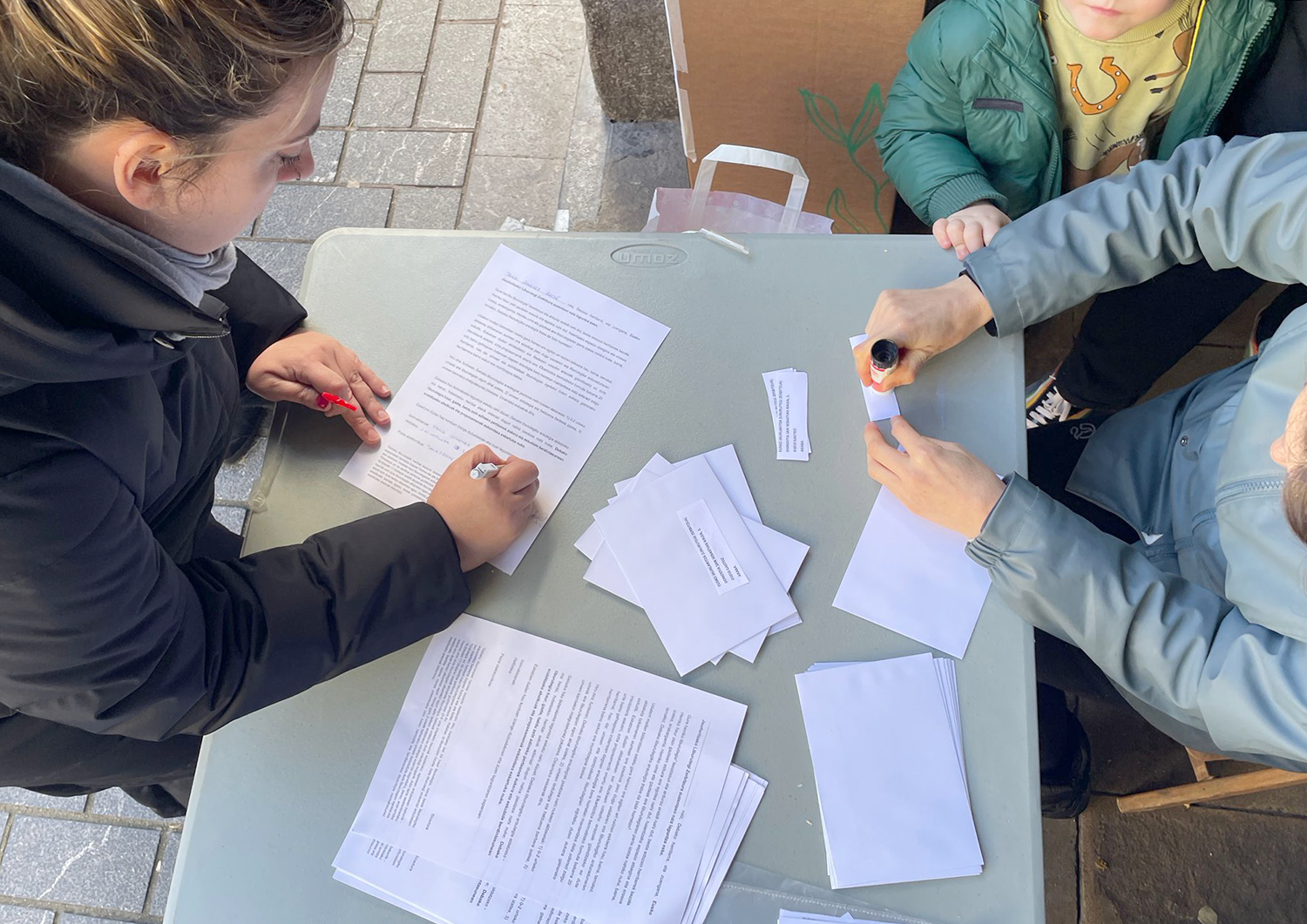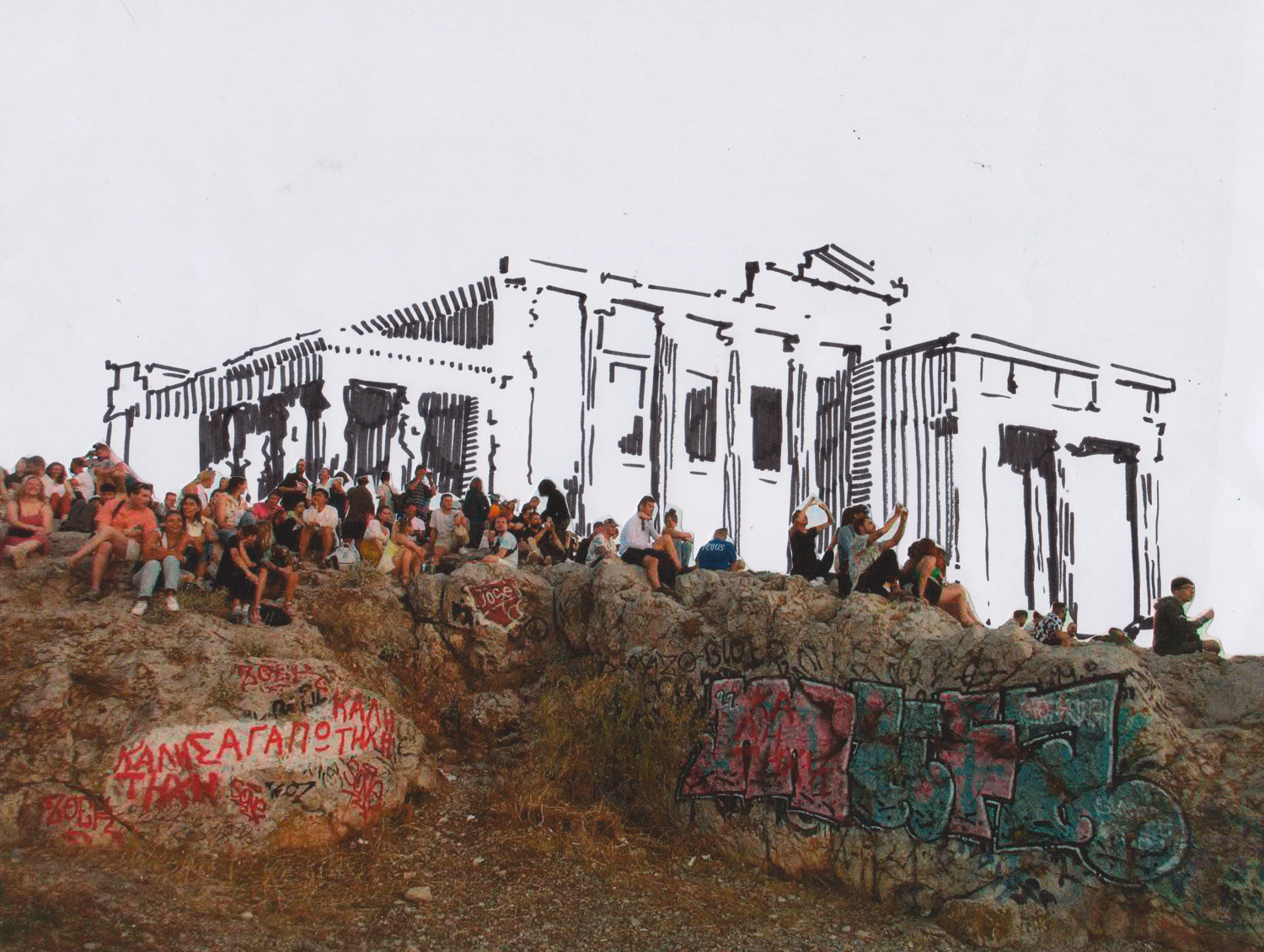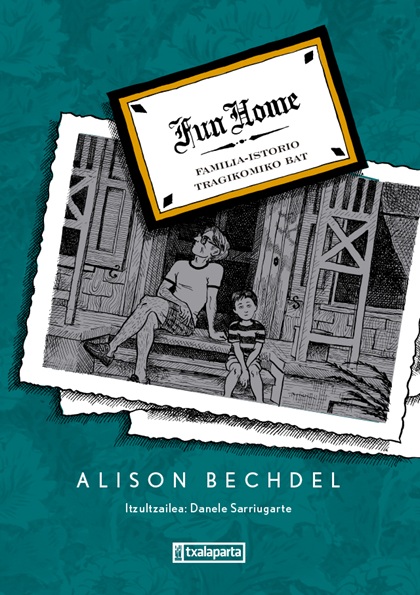“Young people are not only interested in literature, we have to be with them”
- Following the year in which Bernat Etxepare published Linguae Vasconum Primitiae, the brothers Eneko and Xabi Salaberria have created Editorial 1545. Her father paved the way to literature and now they feel persecuted by her. Since 2018, major publishers have published books of all classes that would hardly have been published. They are open to everything, but they have worked mainly on works aimed at children and young people, between literature and philosophy.
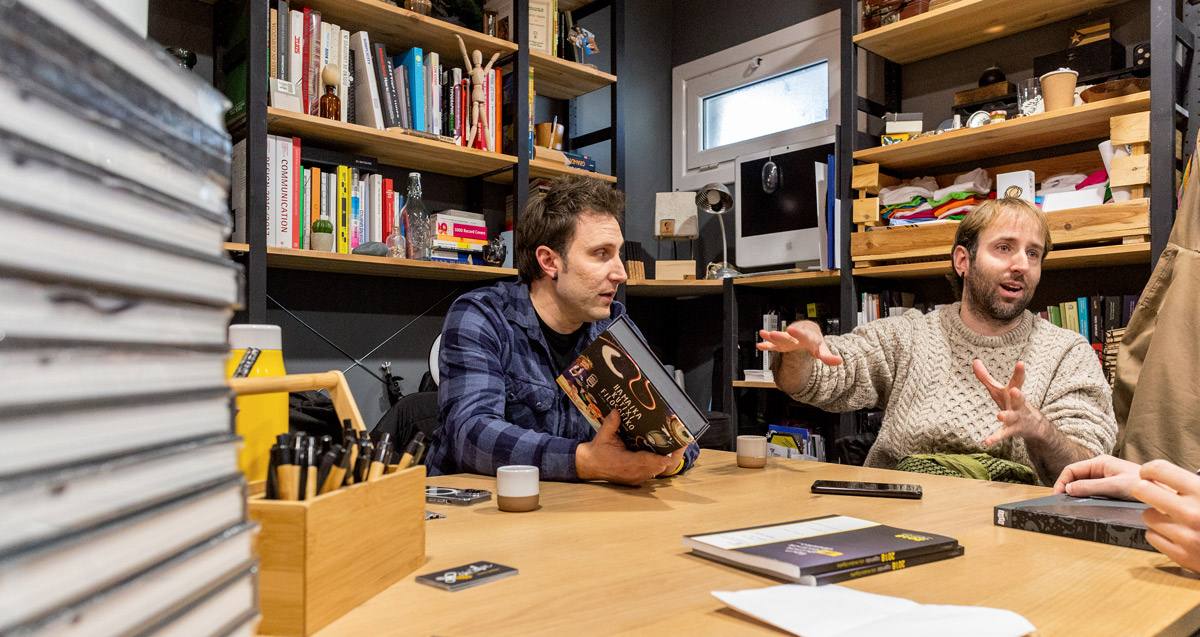
The brothers Eneko and Xabi Salaberria have grown up between books: “My father was passionate about literature and in the living room we had a giant library.” Now, four years after her death, when Editorial 1545 is forming, she feels that she is following the path taken by her. In any case, the relationship of both siblings with the literature is very different: Xabi is a professor of Primary, lives the letters with passion and tries to infect the young every day. On the contrary, Eneko is a graphic designer who sees books primarily as objects. One deals with the essence, another with the image and the design. Thanks to a clear role distribution, each one respects the space of the other and works comfortably in the tasks required by the editorial: “If we had to get into the design aspects, perhaps the collisions between us would begin. But with the division of labor today everything is going well, we don't argue. I want above all to see the finished product, while Xabi clearly sees what material is missing: this is not, let’s do,” explains Eneko.
The first steps of the editorial were given by Eneko himself. He published the Ihotik card game on Oiartzun and a 2018 agenda with the notes of Andoni Egaña. Then Xabi was introduced, and soon the perspective focused on child philosophy. He is a member of the Philosophical Impact initiative and the Jakinmin Association, and soon found that there are hardly any materials in Basque to work philosophy with children. “In the village, the philosophy programs we organize with children always start with an incentive: it can be a verse, a poem, a work of art, a sculpture… It is a starting point, an excuse, to start a philosophical dialogue. We were always looking for a stimulus: in Matthew Lipman, one of the precursors of children's philosophy, we would often refer to English novels, but we always had to go back. In Pandemia, as we could not do face-to-face sessions with children, we came up with a good time to create material,” he explains. Hamaika Kutixi Filosofico was born. As its name suggests, it brings together eleven philosophical themes, accompanied by eleven stories and illustrations. They have also produced sheets with questions about each story. Despite being a project initially created for use in Oiartzun, it soon spread to the entire Basque Country. “People have been very grateful because there were no spaces to address these issues. At first it surprises: children and philosophy? But our approach is not to teach children what philosophers thought, but to put into practice and philosophize together. Whoever tests knows that it works.”

Three publishers came to propose the publication of the project. There was no possibility. These resignations are, among others, the reasons why they have encouraged the creation of their own editorial, according to Eneko: “In the current literary industry, there are many interesting projects left in the drawer for some reasons: for its rarity, for its lack of sale… The philosophy of children seems unviable. In addition, we wanted to have the box format with sheets. Well, today is the day that 700 boxes have been sold. Here we find the objective of our editorial, when we publish projects that will not be published otherwise. It was easy: to register as an editor and from there everything is possible.”
From that time it is also the book Zergatik nago munduan, written and illustrated by Malen Etxebeste, who participated in the children's philosophy sessions. With this book the Hypatia section of the editorial was released. “A group of 11-year-old boys and girls, at the end of their classes, began to meet in the garden of Etxeben, to philosophize on a subject. One day they wrote a letter to the city hall asking the garden to change its name, explaining why they met and what Hypatia was. And the City Hall does. The students themselves first drew the mural and later the name was changed. In his honor we named our department that combines education and thought,” says Xabi. The story Lur by Josu Galdos is also in this collection.
Mares de la Luna
The editorial allows to publish both custom works and own projects and has recently published his second harvest work, Mare. It has been the most collective initiative so far and, like Hamaika Kutixi Filosofico, it arises out of a vocation to fill a void.
When his father was passionate about literature, four years after his death, they follow his course
Xabi lacks a space that brings young people closer to poetry: “If they are authors who have written poetry for children in Basque, like Juan Kruz Igerabide, Yolanda Arrieta, Leire Bilbao or Miren Agur Meabe, but only those who have written for young people. And it happens that children read poetry as a game, but when they reach an age, they stop reading and don't say how to write, if it's not for some prize. I had long thought of doing something that would merge young people with poetry, but something special. I once read an article about the Moon, and so I learned that at one time it was believed that there were seas in it, and although it has been known that they do not exist, there are still areas called seas: the sea of death, the sea of loneliness… Here I have a theme, I thought about myself. It also occurred to me that a song by Idoia Asurmendi was going to marry the project well, I had a coffee with Jon Martin and he proposed to write the lyrics to the song. I like to imagine projects from the very beginning. If the first piece fails me, maybe everything gets in question… If Jon had told me I went crazy, maybe the book wouldn’t have been published. But he loved it.”
Mary has three prologues that Xabi also had in mind from the beginning. The first prologue is scientific, written by Ana Galarraga; the second philosophical, by Iñigo Martínez Peña; the third, literary, formed by Joseba Sarrionandia. "The prologues are not by chance in this order, science provides information but cannot explain everything. The philosophical part says there are things we will never know, and that's OK, and then finally there's art. Maybe because we can only get to some art stuff. All students have three dimensions inside. And the three dimensions share the same characteristic: search. The scientist seeks something, the philosopher also and the artist.” At the beginning of the project, 110
Basque poets were listed, aware that they needed 29, because the moon cycle lasts just over 29 days and wanted to blink. Most of those who have received the proposal have agreed. “Some have been left out and it has made us sad. People feel our illusion. We are not the regular publisher and know that we will look well at what we are going to do.”
The two branches of the editorial have created the editorial To fill a gap, but they also know that only by creating material will they hardly push young people to read. “Creating product is important, but above all it depends on who drives it and how it drives it. This year the children's reading group has been set up. Xabi does guidance work and 53 young people have been appointed, it is terrible,”
says Eneko.
Eneko Salaberria: “In today’s literary industry there are many interesting projects in the drawer because they are unusual”
She looks like her little brother: “They live comfortable with the tablet and mobile. They're more attractive than books, and we have to recognize that. So you must reach them. Just with interesting books, young people don't care about literature, we have to be with them. And that's the work of teachers, parents and society. It’s hard for young people to mature books for themselves.”
Literature is the second branch of editorial 1545. In addition to the publications, they organize literary activities in the city. “Publishing the book is OK, but if you stay on the shelf it’s like not leaving. Bernat Etxepare said ‘euskara, jalgi hadi plazara’ (the editorial owes its name to the year of publication of Linguae Vasconum Primitiae), because our motto is ‘literature, jalgi hadi plazara’. Both with children, young people and adults. We would now like to create a group of young people’s readers.”

It would be a further step in the intense cultural movement that is otherwise seen in the people. According to the two brothers, since the pandemic there has been a process of penetration among cultural lovers. “Writers, sculptors, plastic arts people… In Oiartzun there has always been cultural movement, but the new generations come very strong. There are many philosophers. According to Agustín Arrieta, in his book The Night Debates, Oiartzun is a small Athens.” They specify that this trend strengthens the next cultural center and the cooperative that dynamizes it. “This is a Community public project, the model of which is the Azpeitia Culture Bureau, which brings together citizens, creators and associations.”
Slow, but they certainly do not lack
ideas for the future. They are clear, however, that the pace of work must be sustainable. “Two or three times a year can be an appropriate measure. Mare has asked for a lot of coordination and at a certain point we will continue with smaller projects.” A short story by Uxue Alberdi and another by Irati Goikoetxea will be published soon and illustrated by Irrimarrak – Irene Irureta and Garazi Gorroño – entitled Nor, whose theme is sexual identity. An illustrated children's literature album, translated from English by Garazi Ugalde, is also on the way.
Xabi Salaberria: “In education it’s hard for us to spend time on thought and poetry; it’s another rhythm”
Moreover, both brothers are pleased to work together. Eneko is especially excited to share the editorial with Xabi: “I am waiting for the next stone. When you see that one of yours is very welcoming, it fills you a lot and seeing that everything is kept in a book is nice.” Xabi is also delighted to follow his father’s path. “I am a professor, but I always dedicate myself to literature: I am responsible for the corner of the book of the ikastola, I am reading stories every day… In education we have a lot to spend time on thinking and poetry, because they ask for another rhythm. We've gotten used to doing everything fast and at small doses, and often we don't have time to talk and reflect together. If the creation of an editorial is an anti-current act, work these topics in teaching. In any case, the realization that you are trying to fill that gap that we so often feel fills a lot.”
Puntobobo
Itxaso Martin Zapirain
Sowing, 2024
----------------------------------------------------
The title and cover image (Puntobobo, Wool Bite and Rag Doll) will suggest mental health, making the point and childhood, but more patches will be rolled up as the book... [+]
Party and recreation. Oral History of Rock Radical Vasco
Javier 'Jerry' Corral
Books, 2025
------------------------------------------------
Javier Corral ‘Jerry’ was a student of the first Journalism Promotion of the UPV, along with many other well-known names who have... [+]
Itsasoa bete urre
Dani Martirena
Irudiak: Ana Ibañez
Txalaparta, 2022
--------------------------------------------
Liburu honetara barneratzen den irakurleak sentsazio ugari izango ditu. Deigarria da azaleko letren urre kolorea eta zuritasuna, goialdean ageri den... [+]
Hirietako egunerokoa interesatzen zaio Sarah Babiker kazetariari; ez, ordea, postaletako irudia, baizik eta auzoetan, parkeetan, eskoletan, garatzen den bizitza; bertan dabilen jendea. Lurralde horretan kokatzen dira bere artikuluak, baita iaz argitaratu zituen bi lanak ere... [+]
Migranteak
Issa watanabe
1545 argitaletxea, 2024
-------------------------------------------
Ezagutzen ez nuen 1545 argitaletxeak 2024an itzuli eta kaleratu du Issa Watanaberen Migranteak liburua. Animalia talde batek egiten duen migrazio prozesua kontatzen du; eta... [+]
Adania
Shibli
Translation: Aitor Blanco Leoz
Igela, 2024
----------------------------------------------
During these days, an Israeli soldier is bombarding hospitals, schools, Palestinian refugee camps with drones as if it were a video game, while in the West we see on... [+]
Winter has always happened to me melancholy. It was time to look out the window and remember. An ineluctable bureaucracy between autumn and spring, painting back blank on a vertical parcel to reflect whatever you want. It's not just my business, those who forget that the snow is... [+]
Fun Home. A tragic family
history Alison Bechdel
Txalaparta, 2024
---------------------------------------------
Fun Home. Alison Bechdel is known for the first publication of the graphic novel A Tragic Family Story (2006), although he himself participated in several... [+]







